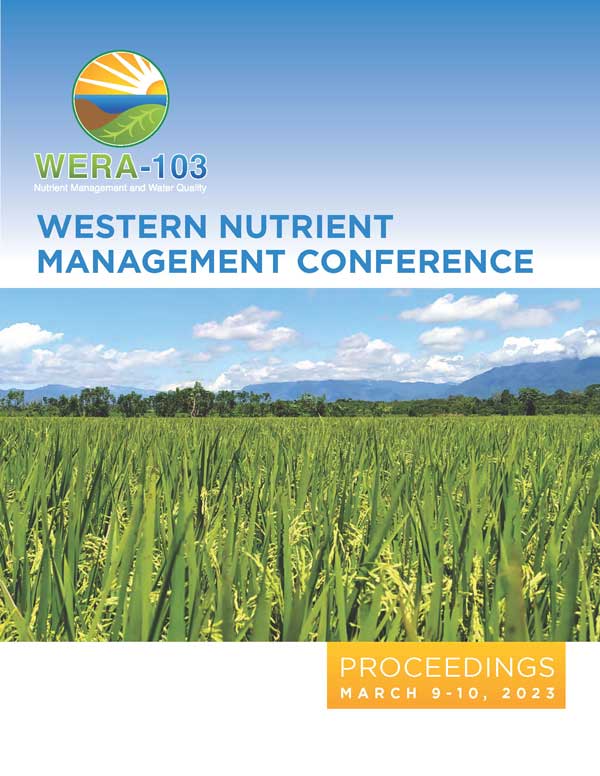Download the Conference Proceedings
Get your copy of the 2023 Western Nutrient Management Conference Proceedings today! Download the PDF file and view all of the available proceedings.
Proceedings
Authors
| Filter results1 paper(s) found. |
|---|
1. Floral Hemp Responses to Nitrogen Fertilization in the High DesertThe performance of floral hemp under N fertilization is influenced by environmental conditions, management and cultivar selection. This field study evaluated the effect of no supplemental N and N fertilization at 90 kg ha-1 on three hemp cultivars (Berry Blossom, Red Bordeaux, and Tahoe Cinco) in Northern Nevada. Nitrogen increased plant height, canopy cover, stem diameter and shoot biomass, but other physiological parameters were dependent on cultivar. We evaluated the use... F. Barrios masias, M. Farnisa, J. Solomon, G. Miller |
